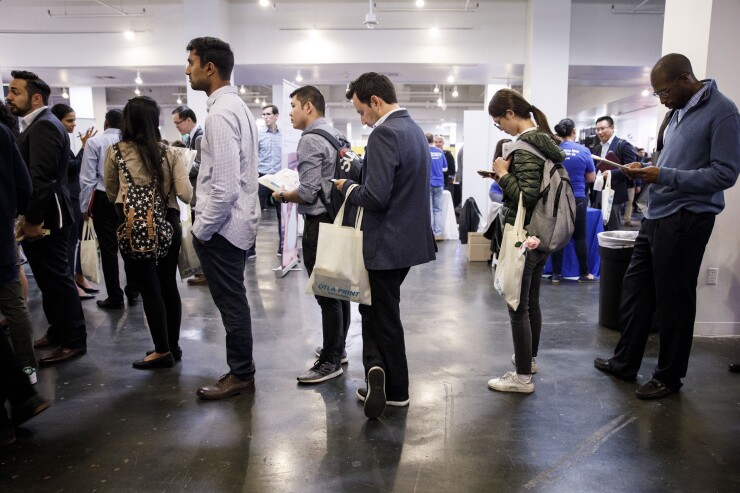The share of people who think they're likely to be unemployed in the next four months reached a record high in a Federal Reserve Bank of New York survey of consumer expectations that dates back to 2014.
At the same time, there's a rising number of consumers who expect to receive a job offer in the next months compared with a year ago. Overall, the N.Y. Fed survey shows increased churn in the labor market, as well as workers who are increasingly dissatisfied with their wages and benefits and holding onto high pay expectation levels.
Every four months, the N.Y. Fed asks about 1,000 people about their job situation and outlook. Economists and policymakers have been on high alert for any signs that the labor market may be deteriorating at a faster pace than thought after the July employment report showed a rise in joblessness.
The July survey found that 4.4% of respondents expect to lose their jobs in the next four months, the highest on record. But the share remains smaller than those who anticipate they'll move to a new employer, which rose to 11.6%.
The report highlights increased turnover. The rate of transitioning to a different employer rose to 7.1% — the highest reading since the survey started. And the share of people who had a job four months ago and are still with the same employer was at a record low of 88%.
Workers are less satisfied with their job and looking for other opportunities. Promotion opportunities deteriorated, particularity for women, people without a college degree and those with annual household incomes lower than $60,000.
While churn increases, workers are holding onto their pay expectations. The average reservation wage — the lowest wage at which respondents would be willing to accept a new job — remained near record highs, at slightly more than $81,000. That's up by almost $20,000 since March 2020.
Pay demands among women have been faster than for men over the years, but men continue to expect substantially more — $94,500 compared with $66,400 in the latest survey released Monday.
An increasing share of workers are expecting to work longer.
The percentage of people saying they're likely to work beyond 62 bounced off a record low of 45.8% reached in the March 2024 survey and increased to 48.3%. The expectation of working beyond age 67 also increased.
Those data could imply that despite rising stock markets and housing prices, inflation may be making some older workers think twice about retirement.






